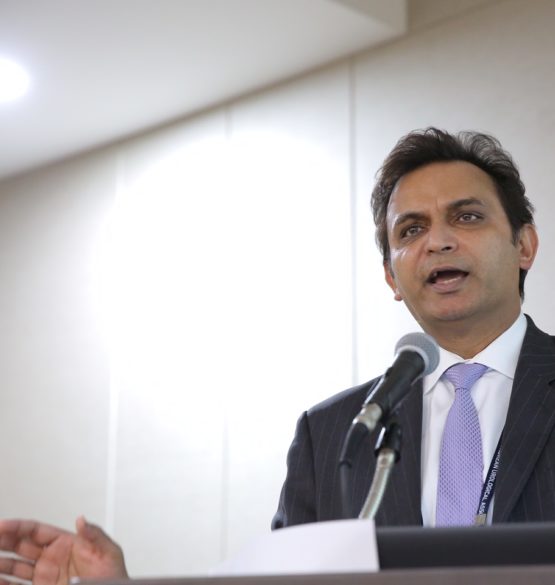Professor Prokar Dasgupta OBE
Professor Prokar Dasgupta OBE is one of the world's leading robotic urological surgeons and the recipient of the John Wickham lifetime achievement award in robotic surgery in 2023. He is the King James IV Professor of Surgery, a Padma Shri awardee from the President of India and an Officer of the Most Excellent Order of the British Empire.
He graduated with a MBBS in 1989, completed his FRCS in 1994 and FRCS in Urology in 2000. He was a Medical Research Council Fellow which led to a MSc in 1996 and MD from the University of London in 2001.
He was appointed as Consultant Urologist to Guy's Hospital in 2002 where he pioneered robotic surgery in his specialty within the UK. He became the first Professor of Robotic Surgery and Urological Innovation at King's College London in 2009. From 2012-20 he led the renowned British Journal of Urology International as its 10th Editor-in-Chief.
Prokar has developed a national and international reputation for the highest quality of clinical services especially in the rapid diagnosis and treatment of prostate, kidney and bladder cancers and benign enlargement of the prostate gland.
In addition he has over 800 publications and a highly productive team of clinician-scientists developing advanced robotics and new cell-based therapies in prostate cancer. He is credited with the "Dasgupta technique" of injecting Botulinum toxin in overactive bladders. He was awarded the Golden Telescope and St. Peter's Medal by the British Association of Urological Surgeons for significant and lasting contribution to urology.

Contributing to academic excellence, Professor Prokar Dasgupta pioneered robotic urological surgery at Guy's Hospital and leads on surgical simulation within the UK and internationally. In 2010 and 2018 he was named one of the top ten prostate cancer surgeons in the United Kingdom by the Daily Mail.
His main basic research interest is in the immunology of prostate cancer and he is part of the Prostate Cancer Research Centre at King's.
Professor Prokar Dasgupta is also credited with describing an innovative technique of injecting Botulinum toxin (Botox) with a flexible telescope to target bladder nerves, a method which has been named after him and helped millions of patients worldwide.
He was awarded the Fellowship of the Linnaean Society (FLS) in 2017, the Fellowship of King’s College (FKC) in 2018 and the St Peter’s medal from British Association of Urological Surgeons in 2020.
In 2020 he completed nearly a decade as Editor-in-Chief of a 90-year old journal, the British Journal of Urology International (BJUI) after transforming it into one of the most read surgical journals on the web.
He has been a Trustee and raised funds for a number of charities including the Malcolm Coptcoat Trust, The Prostate Cancer Research Centre, UK and The Prostate Cancer Foundation in Kolkata, India.
Continued experience
Prokar Dasgupta's experience at executive and board levels of different health systems has helped him deliver high quality surgical care at university, hospital, community and organisational levels. While being an active scientist and technologist, he has helped major investments to support growing businesses irrespective of their size.
During his career, he has continued to work as a surgeon in UK, India and many other nations bringing cutting edge surgery to people who need it the most. He is an educator and communicator who had the privilege of leading a 90yr old journal, the British Journal of Urology International, making it one of the most read surgical journals on the web.
Prokar Dasgupta has advised the British and other governments and have a strong understanding of international education at university level.

You can find out more about roles here:
Social media accounts
Contact
The London Clinic
145 Harley Street, London
W1G 6BJ
Site Made with ♥️ By Gossh Expert 2xN

